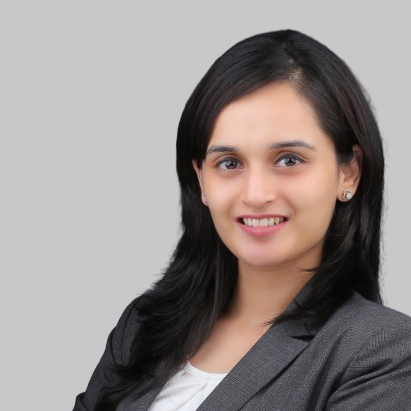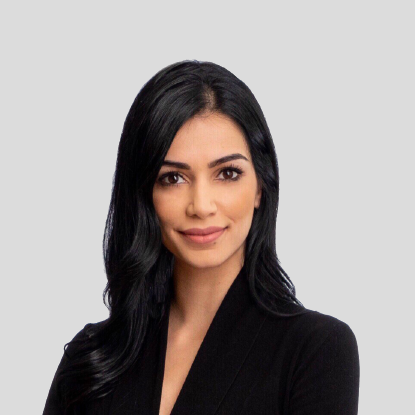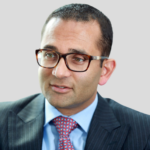Each month, we will feature an active member of the CBV community and share their thoughts on how acquiring the CBV designation advanced their career path in the ever-changing world of finance.

Director, Inspections
Canadian Public Accountability Board
 Alex Cheong CPA, CA, MBA, CBV
Alex Cheong CPA, CA, MBA, CBVDirector, Inspections
Canadian Public Accountability Board
Before joining CPAB, Alex held key positions including Valuations Principal at a public accounting firm and served as the Corporate Controller and Chief Financial Officer of a publicly listed company.
Alex is a Chartered Professional Accountant (CPA), Chartered Accountant (CA) and Chartered Business Valuator (CBV). He also holds a Master of Business Administration from the University of British Columbia.
We asked Alex about his journey as a CBV, including his takeaways from the CBV Program of Studies.
Here are some highlights from our conversation:
How has the CBV designation supported your career development?
I find the program incredibly helpful and highly respected as a designation. Beyond the technical skills it imparts, the program significantly helped to refine my analytical and communication abilities. Many of the CBVs I encounter are outstanding communicators, which is just as crucial as technical expertise. Their ability to effectively articulate complex ideas is a testament to the program’s indirect emphasis on enhancing communication skills. This combination of technical knowledge and strong communication capabilities makes the designation highly valuable.
Can you share a particularly challenging yet interesting valuation analysis that made you realize you had chosen the right career path?
I can’t think of any specific valuation analysis, but I have enjoyed being able to analytically analyze a problem and come to a solution. The CBV program has equipped me to gather insights from various angles and assess problems from multiple perspectives. It necessitates a comprehensive understanding of a business when performing valuations, which has proven to be highly beneficial. This approach is also applicable to my regulatory work, where it’s crucial to understand how all elements interconnect and contribute to the larger picture. The CBV Program of Studies has significantly enhanced my ability to think big-picture.
What differences do you see in your current role as compared to your previous roles?
My role now is quite different from my previous one. Before, I was a valuations principal at a public accounting firm, where I was actually preparing the valuation reports. Nowadays, I’m approaching it from a different perspective. For instance, when audit firms conduct audits with a valuation component, I evaluate whether they have done sufficient audit work to support the valuation.
This role draws on my past valuation experience but also requires me to understand the audit side. I’m happy to have a foot in both worlds. This dual perspective is interesting to me and is something I think many CBVs experience. CBVs work in litigation, business valuation, M&A, and notional valuations, often balancing multiple roles. Being in this dual world is something I find intriguing and aligns with the experiences of many in the business valuation profession.
Do you have any tips for people looking to become a CBV?
Firstly, I would encourage people to truly understand the material from the CBV program. It’s not just about memorizing facts; you need to grasp why things are done the way they are and understand the fundamental principles behind them. Even if the material doesn’t seem immediately applicable, it might become useful five, six, or seven years down the road. Putting in the effort now can pay off significantly in later years.
Secondly, finding a good employer is crucial—one that aligns with your values. CPAB, the organization I’m with now, is very supportive and has a strong culture that supports development and helping employees achieve their professional goals. Being in the right environment helps you excel.
#FunFact: I guess a fun fact about me is my involvement in education over the years as a student, instructor and content author. My grandfather was a school principal and I have vivid memories of him teaching me in my early childhood days on how to write Chinese characters.
This has definitely influenced my work as a CBV and working professional. I really value education—not just the credentials, but how it helps you grow as a person and the relationships you develop along the way.

Vice President
73 Strings
 Kshitij Patel CA, CBV
Kshitij Patel CA, CBV Vice President
73 Strings
Before joining 73 Strings, Kshitij made significant contributions at KPMG and Duff & Phelps (now Kroll), where she honed her skills and developed a deep understanding of the intricacies involved in valuation. In addition to earning the CBV designation and CA certification, Kshitij’s academic background includes a bachelor’s degree in management. This combination of professional experience and academic achievement positions her as a leading figure in the field of valuation, particularly in leveraging technology to enhance traditional valuation practices.
How has the CBV designation supported your career development?
Reflecting on my journey, I hold the CBV designation in high regard. Its reputation precedes itself, and personally, it has been a cornerstone in my professional growth within the valuation field. Since completing my CBV in 2022, I’ve felt a significant enhancement in my value, both to my career and to the broader context of my work. The power of this designation is not just in the title, but in the doors it has opened for me.
I’ve always identified as someone deeply entrenched in the valuation profession, but the CBV designation added a new layer to that identity. It’s like a lens that has sharpened my view, especially in understanding the nuances and complexities of our clients and customers’ challenges. Before CBV, like many in our field, I faced a myriad of obstacles, from intricate valuation analyses to navigating the day-to-day demands of my role.
Post-CBV, my perspective shifted. I started to see problems not just as obstacles but as opportunities to innovate and streamline. It pushed me to think critically about how we, as valuation professionals, can eliminate the repetitive, monotonous tasks we face—be it sifting through vast quantities of data, untangling complicated waterfalls, or making sense of equity allocations.
This journey didn’t just end with a deeper understanding of problems; it set me on a new path toward technology. It’s fascinating how a deeper dive into valuation has opened up a realm where technology and valuation intersect, offering solutions to problems I used to face regularly.
Looking back, I realize how this transition reflects my commitment to advancing valuation practices. It reassures me that I’m on the right path, one where I can better understand and address the challenges faced by our clients and customers. My journey from being a valuation professional to where I am now serves as a testament to the transformative power of CBV designation. It’s been a catalyst not just for my career growth, but for a broader evolution in how I approach and solve problems in the valuation domain.
Can you share a particularly challenging yet interesting valuation analysis that made you realize you had chosen the right career path?
My background was in valuation analysis, focusing on consulting roles. Now, transitioning to an expert in valuation technology, I’ve encountered more challenges, particularly after gaining my CBV experience. A significant hurdle has been managing vast financial data. This complexity amplifies when dealing with hundreds of portfolio companies, each shared data that needs meticulous analysis to ensure accuracy in numbers and projections.
One of our clients faced immense challenges with their cap tables and the sheer volume of data. We stepped in to streamline this overwhelming task, significantly reducing their effort and time required for valuations, which in turn saved costs. They noticed their valuation figures became more accurate and less prone to errors after a few valuation cycles.
The journey hasn’t been without continuous challenges. Working with clients on infrastructure valuations has been particularly demanding. The complexity and cost escalate the deeper you delve into projects like power grids, R&D assets, and transmission lines. Our focus has been on developing systems and products that assist in valuing such intricate assets. We aim to continually introduce new features like customized DCF models, improved cap table management, and automated waterfall analyses.
However, it’s essential to acknowledge that while technology has been a tremendous aid, the core of valuation—judgment—cannot be replaced by tools. These advancements serve as enablers, allowing us to address problems more efficiently and allocate our time to making informed judgment calls, supported by the data and insights these systems provide.
What differences do you see in your current role as compared to your previous roles?
In my earlier role, I dedicated seven years to being at the core of valuation analysis, collaborating with some of the industry’s giants, like KPMG and Duff & Phelps, now known as Kroll. Following this rich experience, I ventured into valuation technology and concurrently pursued my CBV designation.
Since its inception, I’ve been a part of 73 strings, marking over three years with them, which coincides with the period I started my CBV journey. This transition wasn’t just a career move but a once-in-a-lifetime chance to contribute to creating a leading market solution in valuation technology.
The comprehensive understanding, I gained in valuation through my CBV studies has empowered me to view valuation challenges through a technology-focused lens. Currently, my role involves a deep dive into portfolio analytics, significantly aiding portfolio managers to expedite their decision-making processes regarding valuations.
I regularly interact with portfolio managers, who are tasked with evaluating the valuations of hundreds of portfolio companies, sometimes as frequently as twice a month depending on market volatility.
The CBV designation has not only sharpened my understanding of valuation concepts but also significantly enhanced my ability to address and solve client pain points more efficiently in my role in valuation technology.
Do you have any tips for people looking to become a CBV?
Based on my experience, I’ve distilled three essential tips for anyone navigating the valuation profession. First and foremost, networking is vital. We’re part of a very niche industry, and connecting with like-minded professionals can significantly broaden your understanding and expose you to new practices and insights. This is particularly crucial when it comes to staying abreast of new publications or guidelines from regulatory bodies.
Networking not only enhances your knowledge base but also provides a support system for learning and growth. As valuation combines both art and science, the more you engage with others in the field, the more you learn and evolve.
Secondly, staying updated with industry developments is crucial. It’s not just about keeping tabs on the latest theoretical papers or guidelines but also understanding how the market responds to new guidelines.
Lastly, the value of mentorship cannot be overstated. Being a mentor and having a mentor enriches both parties involved. A mentor can guide through various professional challenges and decisions, while as a mentor, you have the opportunity to pass on your knowledge and insights to the next generation. This reciprocal relationship fosters a learning environment that benefits everyone in the valuation community. Embracing mentorship from both perspectives is indeed invaluable.
#FunFact: Having lived in Canada for a couple of years, I’ve honed my skills and transformed into quite the adept handyman, skillfully managing a wide range of household tasks with ease and precision.

Vice President
RBC Capital Partners
 Jeffrey Wong, CPA, CA, CFA, CBV
Jeffrey Wong, CPA, CA, CFA, CBVVice President
RBC Capital Partners
His journey underscores the practical application of CBV principles and the designation’s value in navigating complex financial landscapes.
We asked Jeffrey about his journey as a CBV, including his takeaways from the CBV Program of Studies. Here are some of the highlights from our conversation:
How has the CBV designation supported your career development?
So, I began my career in the assurance practice at Ernst and Young. During one of my engagements, my exposure to private investments piqued my interest in valuations. I believed it was crucial to comprehend the underlying business comprehensively – not just from a financial perspective but also operationally. This foundation, I thought, would make me a better finance professional.
Understanding financial statements alone wasn’t sufficient; grasping valuation aspects was equally vital. As I contemplated my career path further, I realized that valuations played a key role in transactions. Parties needed to negotiate on the valuation, essentially determining the purchase price and its impact on negotiating terms.
After completing my CFE, I transitioned to the valuations business line at Ernst & Young. I found the material in the CBV program of studies to be highly practical and relevant, mirroring the work I was engaged in. Evaluating companies under different growth profiles enhanced my understanding of how equity behaves. It also involved analyzing comparable or relevant precedent transactions and public companies.
Supported by my colleagues, this transition has laid a solid foundation for my career so far.
Can you share a particularly challenging yet interesting valuation analysis that made you realize you had chosen the right career path?
While working in the valuation group at Ernst and Young, I had the opportunity to be part of a team involved in a butterfly transaction, focusing on spinning out an existing business segment of a company. This segment comprised multiple underlying entities, each requiring a distinct valuation approach.
This task proved challenging due to limited precedents, and we had to meticulously review legal documents to determine the appropriate methodology. Credit is due to my colleagues; we were all navigating unfamiliar territory, but collectively, we were able to step back and think through a thoughtful approach.
Ultimately, at the end of this engagement, the client was thrilled with the results and our approach. This particular opportunity allowed me to apply my valuation principles while also considering accounting and tax implications. It revealed to me that business valuation is akin to an asset, serving as one of the tools for a finance professional. Working in the valuations field at that time made my CB core studies much more practical, emphasizing the importance of a holistic approach that I hadn’t fully appreciated before.
What differences do you see in your current role as compared to your previous roles?
In my previous role with Ernst & Young’s Valuations Group, my focus was primarily on business valuation, like individuals you’ve interviewed before. In my current position, I work within a group responsible for originating business, which is essentially akin to marketing and prospecting. We underwrite deals, conduct due diligence, and craft investment memos, essentially building a business case.
Our responsibilities extend to monitoring subordinate debt or equity investments, primarily targeting mid-market companies for various scenarios. Whether it’s acquisition financing, supporting private equity sponsors in acquiring Canadian companies or providing growth capital for management or shareholder buyouts, we play a pivotal role.
In evaluating investment opportunities, I often put on my valuator hat, delving into the business intricacies and understanding its operational segments. This involves assessing whether the valuation aligns with our objectives. Additionally, my current role involves negotiating credit and shareholder agreements.
Reflecting on my experience, I find that the CBV course material, which briefly covered equity and shareholder agreements, combined with my previous positions, has provided me with a foundational experience. Most importantly, it has cultivated a critical-thinking mindset, enabling me to tackle new challenges effectively in my current role.
Do you have any tips for people looking to become a CBV?
Networking for Insight:
When contemplating whether the CBV designation is of interest, engage with fellow CBVs, whether they are colleagues in your field or professionals profiled in the spotlight. Cold-calling and seeking firsthand experiences from others can offer valuable insights. The reality of being a CBV often differs from the information on the CBV website, making personal conversations essential to grasp the nuances of the role.
Practical Exam Preparation:
For candidates enrolled in CBV exams, practical preparation is crucial. Practice exam writing, paying special attention to typing speed, as it becomes second nature. This not only aids in structuring responses efficiently but also ensures effective navigation of the answer key. This aspect might not be immediately apparent to those without prior experience in exams like the CFA or a background in accounting.
Celebrate Successes:
In the journey of pursuing the CBV designation, remember the importance of celebrating each success with every exam pass. Acknowledge and savor these achievements, as they mark significant milestones in your professional development.

Senior Manager, Transactions
Grant Thonton LLP
 Katelyn Rogers, CPA, CBV
Katelyn Rogers, CPA, CBVSenior Manager, Transactions
Grant Thornton LLP
Prior to this, she spent several years in the firm’s assurance group working in the audit practice space, where she obtained her CPA designation. Although her experience in audit provided valuable insights into financial reporting, she found herself increasingly intrigued by clients undergoing transitions and succession planning. Motivated by this, she explored the world of business valuation and M&A while learning more about the CBV Program of studies and recognizing its potential to lay a strong foundation for her career aspirations.
How has the CBV designation supported your career development?
I enrolled in the CBV Program of Studies after working for about a year in our transactions group. I found the program to be highly practical. What I appreciated the most was I had the ability to choose electives. Among the four options available, I selected corporate finance and private investments, which proved to be immensely beneficial for the career path I envisioned.
The CBV designation opened numerous doors for me and laid a robust foundation for my current role. The learnings and experiences from the CBV Program of Studies equipped me with the skills to be a well-rounded advisor for our clients. Today, I attribute my success to the valuable knowledge gained through the program; it helped me become a well-rounded client advisor.
Can you share a particularly challenging, yet interesting valuation analysis that made you realize you had chosen the right career path?
I’ve found that the most challenging files, particularly those with complex valuation issues, have been the ones where I’ve learned the most. Thriving in such an environment, I enjoy the process of research and seeking solutions, which has proven beneficial in connecting with colleagues. One noteworthy experience occurred at the start of COVID, especially with files in the hospitality industry. Apart from navigating intricate valuation matters, predicting the industry’s future amid the uncertainties of spring 2020 added an extra layer of complexity.
During this time, working from home led to collaboration across the country with colleagues. It was a great opportunity to strategize and tackle valuations, especially during the height of the pandemic. Over the past two years, the impact of inflation has added another layer of complexity, particularly in the M&A world. Questions surrounding whether company results are inflation-driven and the uncertainty about the future of certain industries have certainly made things interesting.
In my current role, I find it particularly rewarding to work with business owners before going to market. Assisting them in establishing a price for their business not only sets client expectations, but also proves crucial in the negotiation and strategy phases of M&A. The CBV designation has played a significant role, providing me with the technical knowledge and background essential for effective negotiations on pricing.
What differences do you see in your current role as compared to your previous role?
From a technical standpoint, the CBV designation was invaluable. Integrating the learnings into my day-to-day work provided the experiential dimension needed for a well-rounded skill set. I am genuinely pleased with the path I took for the CBV designation, finding that it seamlessly complements my work in the M&A context. Applying business valuation expertise, I’m also able to support clients primarily focused on succession planning.
Comparing pre-CBV to post-CBV, my CPA designation provided a strong foundation in financial reporting. However, post-CBV, I’m able to leverage the technical skills honed through the CBV Program of Studies to become a more comprehensive and well-rounded advisor. This is particularly evident in my role assisting clients in selling their businesses, a critical process for many privately owned businesses in Atlantic Canada.
Navigating clients through sales processes, acquisitions, or business valuations, which they often undergo only once in a lifetime, requires a specialized skill set. Having the CBV designation and the associated technical skills has proven to be instrumental in this regard.
Do you have any tips for people looking to become a CBV?
I would recommend reaching out to other CBVs to gain insights into the Program of Studies and understand their career paths. Exploring various avenues, whether through casual coffee meetings or virtual connections on platforms such as email or LinkedIn, can provide valuable perspectives on the diverse experiences within the CBV community. After these conversations, consider seeking relevant roles that align with the CBV designation to gain practical experience. Additionally, finding a mentor can significantly contribute to your success, as the combination of practical experience and mentorship proves instrumental in navigating the complexities of the CBV journey.
#FunFact: Right now, my husband and I are renovating a cottage in Cape Breton, which has been in his family for generations. It wasn’t in great shape when we got it, so we’re learning how to tackle jobs such as drywall and painting. It’s a fun project, and we’re enjoying the process of giving the place a new lease on life!

Chief Financial Officer
Diamond Estates Wines & Spirit Inc.
 Ryan Conte CPA, CA, CBV
Ryan Conte CPA, CA, CBVChief Financial Officer
Diamond Estates Wines & Spirit Inc.
Ryan’s professional journey includes distinguished roles in Deloitte’s Financial Advisory Practice, Consulting Company and prior start-up businesses. His ability to effectively manage diverse functions and create value while fostering growth through effective financial and valuation practices is a testament to his leadership powers.
How has the CBV designation supported your career development?
The CBV designation has been a substantial contributor to my career progression, providing me with an important tool at my disposal. It has proven to be advantageous in my role as a CFO, notably shaping my career trajectory. This designation has played a pivotal role in leading me to specialize in assisting struggling companies and overseeing their financial restructuring by either maximizing or realizing the value of their assets. A lot of companies that I have worked with have often been in distressed situations. It also helped in M&A, fundraising, and investor relations.
Can you share a particularly challenging, yet interesting valuation analysis that made you realize you had chosen the right career path?
Early in my valuation career, I had the chance to be an integral part of the team assigned to independently analyze BlackBerry. This occurred during a phase when BlackBerry’s market share had significantly dropped, and they were losing their position as a prominent handheld provider. The company was grappling with decisions about its future direction.
At that point, the company was financially stable, but faced a rapid decline in market share, necessitating a substantial restructuring. This presented a complex challenge for the valuation process, as it highlighted how valuations can swiftly transform over a brief period. This experience also granted me insight into the inner workings of companies and their management teams during times of uncertainty, particularly when they are facing an unpredictable environment. The lessons I gained from this have proven to be valuable assets throughout my career.
What differences do you see in your current role as compared to your previous role?
In my former position, I spent 11 years at a Big Four firm, mainly concentrating on corporate finance, consulting, and business valuation. In this role, the main emphasis was on finalizing financial reports, achieving deliverables, and aiding the audit team with financial reporting needs. Subsequently, I transitioned to a CFO role in small- to medium-sized business, which demanded a more comprehensive perspective. My CBV experience has always allowed me to bring in valuable attributes to alter the role.
Do you have any tips for people looking to become a CBV?
Go beyond the conventional CBV role – it’s not just about valuation reports and financial reporting. The power of valuation analysis lies in its ability to unearth concealed values within organizations.
#ImportantFact: I was born with moderate to severe hearing loss. My condition is mostly unnoticeable to people who don’t know me. During the initial stages of my career, I faced considerable challenges because I had to focus very intently to understand everyone. This left me quite exhausted by the end of a workday.

Partner
Baker Tilly WM LLP
 Simi Sodhi, CPA, CBV
Simi Sodhi, CPA, CBVPartner, Audit, Valuations & Corporate Finance
Baker Tilly WM LLP
How has the CBV designation supported your career development?
I have always been interested in business valuations and the world of corporate finance, so I enrolled in the CBV program in 2019. My background in cell and molecular biology and my CPA designation provided me with a wealth of knowledge, but the CBV designation was the catalyst for my professional growth. It gave me the professional edge to stand out in the marketplace, the confidence to build my practice, and the technical skills to be an objective expert or trusted advisor to my clients.
Can you share a particularly challenging, yet interesting valuation analysis that made you realize you had chosen the right career path?
Valuations are inherently complex, with each engagement presenting its own unique set of challenges. Over the last couple of years, technological advancements and increasing environmental awareness have given rise to the number of valuations in emerging industries such as renewable energy or biotechnology. These valuations are particularly challenging due to the scarcity of financial data, uncertainty in future performance, and limited comparable companies in the marketplace. Even with the added challenges, these are the types of engagements that I look forward to the most as they remind me that the process of valuing a business is a combination of art and science and I’m able to play to my strengths. I find the valuation of early-stage companies to be particularly rewarding as the analysis can significantly impact key decision-making processes and help guide investment decisions, funding rounds or potential mergers and acquisitions.
What differences do you see in your current role as compared to your previous role?
When I started my career in public practice, my primary focus had been on the audit of publicly listed entities. Auditing and valuations both require a high level of professional judgement, but they differ in their objectives and focus areas. Auditing helped me gain a fundamental understanding of how businesses operate with a focus on capturing historical transactions. Whereas valuations provided me with a bigger-picture perspective and a more holistic understanding of businesses with a focus on the future earnings potential of a business.
Do you have any tips for people looking to become a CBV?
• While going through the CBV program, find a firm where you can gain a wide range of practical experience and embrace a continuous learning mindset.
• Given the time pressure with the Member Qualification Exam, set realistic expectations and let go of perfectionism.
#FunFact – Travelling is a passion of mine and I have been fortunate to work internationally in both Australia and New Zealand.

Partner
Valkrest Consulting Corp
 Munish Mohendroo
Munish Mohendroo MBA, CMA, CBV
Partner –Valkrest Consulting Corp
As an immigrant, Munish is driven to help integrate skilled immigrants into the Canadian workplace. He actively volunteers with organizations that work with immigrant professionals, supports immigrant entrepreneurs, and has led diversity and inclusion councils in his past roles.
How has the CBV designation supported your career development?
In 2002, I immigrated to Canada as an experienced valuation professional from South Africa; where I worked in the valuations team of a large firm, but without a formal valuation qualification. Shortly after moving to Canada, I obtained my CBV designation; which provided me with additional technical skills and helped my career progression as a valuation practitioner – both in Canada and outside of Canada. Subsequently, after over 20 years in professional practice with large firms, I established my own practice focused on Valuations and Financial Modelling. The CBV provided a platform to launch my own practice and garnered a lot of respect from clients who see you as a Valuations expert and have the confidence to give you assignments.
Can you share a particularly challenging, yet interesting valuation analysis that made you realize you had chosen the right career path?
In my opinion, being a CBV involves more of an advisory or consulting role where you can help clients from a strategic perspective. While assurance also allows for strategy and big picture thinking, it’s still fundamentally tied to a compliance perspective. As a CBV, I find it intriguing to assist clients on a pre-deal basis, helping them consider pricing strategies for potential acquisitions, the types of intangibles they may be acquiring and identifying potential synergies for that sector. This incorporates more of a consulting role and, as a CBV, I can wear both hats, i.e. participating in broader strategic discussions but also helping clients understand any financial reporting considerations once the deal closes.
What differences do you see in your current role as compared to your previous roles?
In my previous roles as partner with the large firms, my work was primarily focused on larger listed clients; and included a lot of engagements for financial reporting purposes. My current practice is focused on the private mid-market and/ or closely-held private businesses. While building and managing can be stressful and requires juggling many roles, it provides me more flexibility and control over my time.
Do you have any tips for people looking to become a CBV?
1. Take the exam writing technique courses, I found these extremely helpful.
2. Do the practice exams – as many as you can.
3. Seek guidance from other CBVs and fellow students.
#FunFact: I enjoy running – for fitness and for fun. I recently completed the World Marathon Challenge – completing 7 Marathons on 7 Continents (incl. Antarctica) in 7 Days (consecutive days). Pretty confident that I am the only CBV to have ever done this. Well, there are only 190 people in the world that have completed this; and I am the 6th Canadian to complete this ever.

Partner
Ernst & Young LLP
 Tiki Cheung
Tiki CheungMAcc, CPA, CA, CBV
Partner – Valuation, Modelling & Economics and Entrepreneurial Winning Women Program Co-Leader
Ernst & Young LLP
How has the CBV designation supported your career development?
I started my CBV relatively early in my career while still in university. This was largely due to the influence of a motivating professor who holds the CBV designation. Though I previously worked in assurance, after completing my CFE (the UFE at that time), I immediately pursued a valuation role that intrigued me. While I learned a lot from my time in assurance, the CBV designation has been instrumental in shaping my career path. Especially in the earlier stages of my career, the CBV piqued people’s interest and gave me a great conversation starter with clients and new contacts who were interested in learning more about the profession and my day-to-day job responsibilities.
Can you share a particularly challenging, yet interesting valuation analysis that made you realize you had chosen the right career path?
This particular experience is deeply ingrained in my memory:
During the earlier stages of my career, I had the opportunity to work on a massive valuation project where I assisted in creating methodologies to value sports franchises. The assignment involved examining three sports franchises – an NHL, NBA, and MLS franchise – all within the same project. It was a fascinating experience that required the incorporation of all aspects of a CBV’s expertise.
We had to analyze the fundamental elements that drive the value of a specific asset, understand the uniqueness of the sports franchise sector, conduct extensive research and interviews, and learn how the market perceives the value of a sports team. The project was challenging, but I thoroughly enjoyed the learning process. It was a rare opportunity that enabled me to apply my core knowledge of valuation principles and sector knowledge while also incorporating accounting and tax implications. The complexity of the assignment made it an amazing learning experience that I will never forget.
What differences do you see in your current role as compared to your previous roles?
In my opinion, being a CBV involves more of an advisory or consulting role where you can help clients from a strategic perspective. While assurance also allows for strategy and big picture thinking, it’s still fundamentally tied to a compliance perspective. As a CBV, I find it intriguing to assist clients on a pre-deal basis, helping them consider pricing strategies for potential acquisitions, the types of intangibles they may be acquiring and identifying potential synergies for that sector. This incorporates more of a consulting role and, as a CBV, I can wear both hats, i.e. participating in broader strategic discussions but also helping clients understand any financial reporting considerations once the deal closes.
Do you have any tips for people looking to become a CBV?
1. I believe the first and most important step is to speak with other CBV professionals, especially those who are currently working as a CBV or are in the process of becoming one. By gaining insight from their experiences, you can obtain a more realistic and practical understanding of what the job entails, as opposed to simply reading about the requirements on a website.
2. It’s essential to learn as much as possible, so take advantage of available resources, such as CBV Institute’s website and social media platforms.
3. Additionally, if you’re still in school, consider taking a business valuation course as an elective. This is how I was introduced to the profession, and I ended up loving it. My professor helped shape my career.
4. It’s crucial to have a sense of curiosity and to ask professionals about their day-to-day experiences.
#FunFact: I have a fear of heights, but on one of my birthdays, I went paragliding in Switzerland, which was both exhilarating and nerve-wracking.

Founder and Principal
Omnis Valuations & Advisory Ltd.

JT Dhoot
AACI, CBV, ICD.D
Founder and Principal
Omnis Valuations & Advisory Ltd.
With more than a decade of experience in industry and consultancy, he serves a diverse client base, including entrepreneurs, their professional advisors, and leaders across the public, private and not-for-profit sectors.
JT believes that understanding the “why” and the story behind the numbers is critical, stressing the importance of simplifying complex issues to make them accessible to the users of his reports.
We asked JT about his journey as a CBV, including his takeaways from the CBV Program of Studies. Here are some of the highlights from our conversation including a #FunFact.
How has the CBV designation supported your career development?
The CBV designation has been extremely beneficial. It enabled me to establish my practice, and without it, I would not have been able to achieve the level of success I have today. My knowledge of business valuation has helped me not only professionally, but also personally, as I have the skills to evaluate investment opportunities for myself and my family.
Can you share a particularly challenging and interesting valuation analysis that made you realize that you had chosen the right career path?
I began my career as a CBV in a non-traditional way, as a real estate appraiser. This experience sparked my curiosity about the similarities and differences between tangible and intangible asset valuations, ultimately leading me to the CBV Program of Studies. Not long after, I recall working on a challenging assignment involving a family-owned business with significant real estate holdings and a complex capital structure comprising multiple share classes. My work helped resolve a longstanding dispute between the parties, which was a rewarding experience that motivated me to continue learning and exploring opportunities in areas such as alternative dispute resolution and corporate governance. Unlike publicly-traded companies, many privately-held companies have a unique dynamic in that the officer(s), director(s) and shareholder(s) are often the same people. I find this type of work particularly interesting, and the CBV Program of Studies was foundational in preparing me to excel in this space.
What differences do you see in your current role as compared to your previous roles?
In my previous roles, my work was primarily focused on financial analyses and valuations involving commercial real estate and/or closely-held businesses. My responsibilities are much broader now, as running a practice requires you to wear many hats, some of which I find more enjoyable than others. My current role also gives me more autonomy, flexibility and control over allocating my time and resources.
Do you have any tips for people looking to become a CBV?
1. Reach out to other CBVs; this is what I did when I started. Students and prospective CBVs contact me frequently to ask questions about the profession, and I always help them out as best I can.
2. CBV Institute has done a great job in providing a variety of resources. Combining the information on the Institute’s website, social media, and CBV Matters can provide valuable perspective and a well-rounded understanding of the industry.
3. Maximize your study time by understanding and optimizing your schedule and learning environment. Some people are more productive in the morning, while others are night owls. It is important to find what works best for you regarding the time of day, location, and environment and then focus on putting in solid study hours. Find a quiet place, such as a library, or a more stimulating environment, like a coffee shop – whatever works best for you and gets you in the zone.
#FunFact: I find it amusing that I now live just a block away from my elementary school, despite not originally living in this neighbourhood. I remember taking the bus from the suburbs and looking at the older houses surrounding my school, lifting my nose and thinking, “my neighbourhood is way newer/better,” and here I am now, 30-plus years later, living a block from there. It’s funny how things change.

Associate, Corporate Development & Investor Relations
Big Rock Brewery
 Spencer Gunning, CBV
Spencer Gunning, CBVAssociate Corporate Development & Investor Relations
Big Rock Brewery
In his previous role as Portfolio Manager – Diversified Industries, ATB Financial, Spencer managed and assisted in building a leveraged finance portfolio valued at over $500M across a multitude of industries including emerging technologies, aviation, and manufacturing.
We asked Spencer about his journey as a CBV, including his takeaways from the CBV Program of Studies. Here are some of the highlights from our conversation, including a #FunFact.
How has the CBV Designation supported your career development?
The CBV obviously gave me a good deal of tangible skills, but the one thing it gave me right away was the intangible of knowing you have the confidence as a subject matter expert to skillfully approach problems and challenges. I’ve greatly benefitted from this.
My background is in investment and corporate banking so to transfer from a very finance-focused world over to business valuation and corporate development taught me to obviously appreciate key accounting principles, but I then learned how to apply those principles from a finance and company-specific perspective. Clearly, valuation can be used in so many contexts, but from a corporate development perspective – whether the focus is on organic or inorganic growth– my CBV designation has given me a great deal of insight and rigor around how to build out and template information to support truly well-informed business decisions. This input is viewed as highly valuable by the company I work for.
Can you share a particularly challenging, yet interesting valuation analysis that made you realize you had chosen the right career path?
Last year, we went through a period of exclusivity with a company we were looking to acquire – a reputable vodka soda brand in Canada – and the deal ultimately fell through. Brands such as this will oftentimes come to companies like ours for our production capabilities. (Many of these companies are just brands with no production assets of their own – they develop the recipes and then turn to companies like us to oversee production and in some cases, distribution.) For this transaction, we were down to the eleventh hour and there was still a sizeable discrepancy in the purchase price between the respective parties. What the CBV designation really helped me with was analyzing key risks in the transaction and communicating to stakeholders, including our bankers and their bankers. When we took a step back and sensitized certain key risks we saw in the potential acquisition, we gained a lot of confidence in the number and structure we were comfortable with.
Ultimately, the deal fell through and in part thanks to my CBV designation, we were able to make a well-informed and – in hindsight, what we still feel was – the correct decision.
What differences do you see in your current role as compared to your previous roles?
I see myself somewhat as an in-house banker. The key difference from my previous roles in finance is that I now leverage my understanding and experience in capital markets and banking and I now apply it from a company-first perspective. So, corporate development for me is that sweet spot where it has allowed me to do the work I like to do, which is rooted in banking and valuation and, at the same time, it’s with this greater understanding of the company I’m working for, including their strategic objectives, that I look to create value however possible. How do our planned initiatives tie back into our one-year, three-year and five-year plan and then ultimately how do all of these moving pieces tie back to our positioning as a public company from a “maximizing shareholder value” perspective? From that, I put my investor relations hat on and determine how we best communicate this to the market.
Do you have any tips for people looking to become a CBV?
Know what your muscle is, make sure you flex it, but at the same time, focus on increasing your understanding of what you don’t know. The best growth comes from times of discomfort.
Also, do the practice exams and show up to the webinars. They’re helpful.
#FunFact
I’m 6’8” tall and after high school and before beginning university, I was a hockey goaltender for two years playing for several junior hockey teams spanning Alberta and British Columbia. The last team I played on was the Calgary Royals.

Partner
Ernst & Young LLP
 Neal Mizrahi
Neal Mizrahi CPA, CA, CBV
Partner
Ernst & Young LLP
Neal has worked as an expert in various industries, including resource and extractive industries (i.e. oil and gas, and mining and minerals), construction, manufacturing, financial services, cannabis, software, and other sectors.
We asked Neal about his journey as a CBV, including his takeaways from the CBV Program of Studies. Here are some of the highlights from our conversation:
How has the CBV Designation supported your career development?
I was always interested in business valuation, and after obtaining my accounting designation, I researched additional designations that would enhance my valuation knowledge. I landed on the CBV, as it seemed to have the most practical and comprehensive curriculum, with the least amount of overlap with the CPA and business school.
The CBV opened so many doors and has enabled me to do what I do today. While I value businesses for a variety of purposes, much of what I do is act as an expert in the context of disputes. Put plainly, if one party alleges that another party conducted some wrongful act (for instance a breach of contract), I would be retained as an expert to provide my opinion of the monetary damages, which in many cases is a function of the value of a business. Typically, each party in the dispute would retain an expert, so the ability to conduct a credible and objective analysis, consider other viewpoints, and communicate clearly is paramount.
Overall, the CBV designation played a key role in my career progression; it provided me with the technical skills to be able to analyze and opine on complex valuation issues, and it enabled me to be qualified and recognized by courts and arbitral tribunals as an expert witness.
Can you share a particularly challenging, yet interesting valuation analysis that made you realize you had chosen the right career path?
One case emerges as particularly challenging and rewarding. It involves a dispute in the oil and gas industry in Alberta. I was retained by the buyer in a transaction who had acquired assets relating to a number of oil fields in Alberta, with the objective of developing them further (i.e. finding more oil and increasing the acquired company’s value), and selling it within approximately three years. Once the transaction closed, the buyer realized that the company it acquired had significant compliance issues, which delayed its plans by two years. Ultimately, they did find more oil, but by that point, oil prices declined significantly, and the value of their company was lower than what it would have been when they initially intended to sell (i.e. three years post-acquisition), which also happened to be during a period of peak oil prices.
So, the buyers commenced litigation against the seller, suing for millions of dollars, and I was brought in as a valuation expert to quantify the damages. I quantified the values at different points in time and the resulting “Loss of Opportunity” suffered by the buyers. I testified twice in the Provincial Court of Alberta, where I was cross-examined at length. Ultimately the court accepted my valuation evidence which led to an award of damages of almost $200 million dollars.
A link to the decision is available here.
Do you have any tips for people looking to become a CBV?
1. Experience helps: Try to work in the valuation field while you acquire the designation. The day-to-day work experience really enhances your learning in the CBV Program of Studies. I found that I’d read about a concept in the course materials and apply that knowledge in the same week or month – that really enhanced my learning.
2. Have a mentor and be a mentor: There are immense benefits to both. First, having a mentor that is experienced can help you through the process and your career. Second, being a mentor to others is not only rewarding, but it allows you to pause and reflect on your own experience. I’m grateful to those that have mentored me throughout my career and still have people I look to for guidance.
3. Enjoy the process: Getting into a new field is an exciting time in your career. Sure, it’s challenging, but there’s a ton of development that occurs over that period and a great opportunity to meet new people.

Vice President Valuation
Fiera Comox Partners
 Anne David
Anne DavidCPA, CA, CBV
Vice President Valuation
Fiera Comox Partners
She has also been an active member of the CBV Institute’s Education Committee and has also served as a teacher in the CBV Program of Studies. Anne very recently joined Fiera Comox as Vice President, Valuations.
We asked Anne about her journey as a CBV, including her takeaways from the CBV Program of Studies. Here are some of the highlights from our conversation.
How has the CBV designation supported your career development?
My CBV journey started in 2013 when I was working in M&A and looking for some clarity and guidelines to move forward in my career. M&A has a lot to do with negotiations, but before that, you must get involved in business valuation and that’s when I realized the CBV designation could help elevate my career. So began my journey into the world of business valuation. I then joined the KPMG valuation group to make the most of it.
I shared my passion for valuation by coaching students who were enrolled in CBV Institute’s Program of Studies after passing the MQE. I started to quickly undertake more responsibilities with CBV Institute, such as marking exams and becoming an active member of the Education Committee and as a course instructor in 2018.
In the same year, I started working as Head of Valuation at Investissement Quebec and laid the foundation of its valuation department that would oversee a $15 billion portfolio and built a team of valuation professionals to strengthen valuation for financial reporting procedures.
Can you share a particularly challenging yet interesting valuation analysis that made you realize you had chosen the right career path?
The unprecedented market volatility in the initial days of the COVID-19 pandemic posed many challenges for CBVs. I had to report on the value of Investissement Quebec on March 31, 2020. I had plenty of questions on my mind and we had to redo all the valuations that we had prepared in advance.
The CBV community came together to share ideas and methodologies and in a time of great uncertainty, I felt the power of our network. At that exact moment, I knew I had chosen the right career path.
Do you have any tips for people looking to become a CBV?
1. Don’t hesitate to ask for help, get a mentor or a tutor to help you practice because the MQE is quite challenging. Having someone re-read your answers is a must before trying to attempt the MQE.
2. My advice to young CBVs is this: the answer is not always in the books, but going back to basics will always help you find the answers.

Partner
Sequeira Partners
 Kira Gregson
Kira GregsonCPA, CA, CBV
Partner
Sequeira Partners
We asked Kira about her journey as a CBV, including her takeaways from the CBV Program of Studies. Here is some of what she had to say:
How has the CBV designation supported your career development?
As a guest lecturer at the University of Alberta, I get this question a lot and I say that the more tools you have in your toolkit, the better. Especially when you are a business advisor. What is unique about the CBV designation is, that when applying valuation fundamentals, you are really forced to understand a company’s inner workings from a very complete and well-rounded perspective. You cannot just focus on one aspect of the business. You need to understand the business from a financial perspective, but also operationally and from a human capital perspective to understand what drives value. Then you can apply the basics of valuation theory learned through the Program of Studies to develop valuation conclusions. This is what makes you a trusted advisor and resource for your clients – which I love.
Can you share a particularly challenging, yet interesting valuation analysis that made you realize you had chosen the right career path?
I have been solely practicing valuations for 10 years, and every year there is a marquee file that is challenging. One particular file that made me realize I had chosen the right career path was when I had to value a company that was invested in multiple companies. It wasn’t just one valuation, it was multiple valuations, and these companies were in various stages of development, some with limited history and all were operating in new and emerging sectors within technology and software. It was particularly challenging because there was limited precedent for this space. The first sentence that comes to my mind is “this is hard and maybe I cannot do it”. However, then you take a step back and you work through it. The CBV Program of Studies teaches you valuation fundamentals that you can apply to companies of any size and industry. In the end, it was a very positive outcome for the client and for my professional experience.
Do you have any tips for people looking to become a CBV?
1. If you put the time in, and work through the modules and accompanying content, I am confident you can pass every single module. What you put in is what you are going to get out of it.
2. There is flexibility in the program. There is a course pack, there are online resources, and you can work at your own pace. I found that I could accommodate the course work into my personal and work life. I think the program is approachable from any stage you are at in your career in terms of time commitment.
3. To get the most out of the program, you need practical experience whether it be directly through work or in collaborating with peers or a mentor.